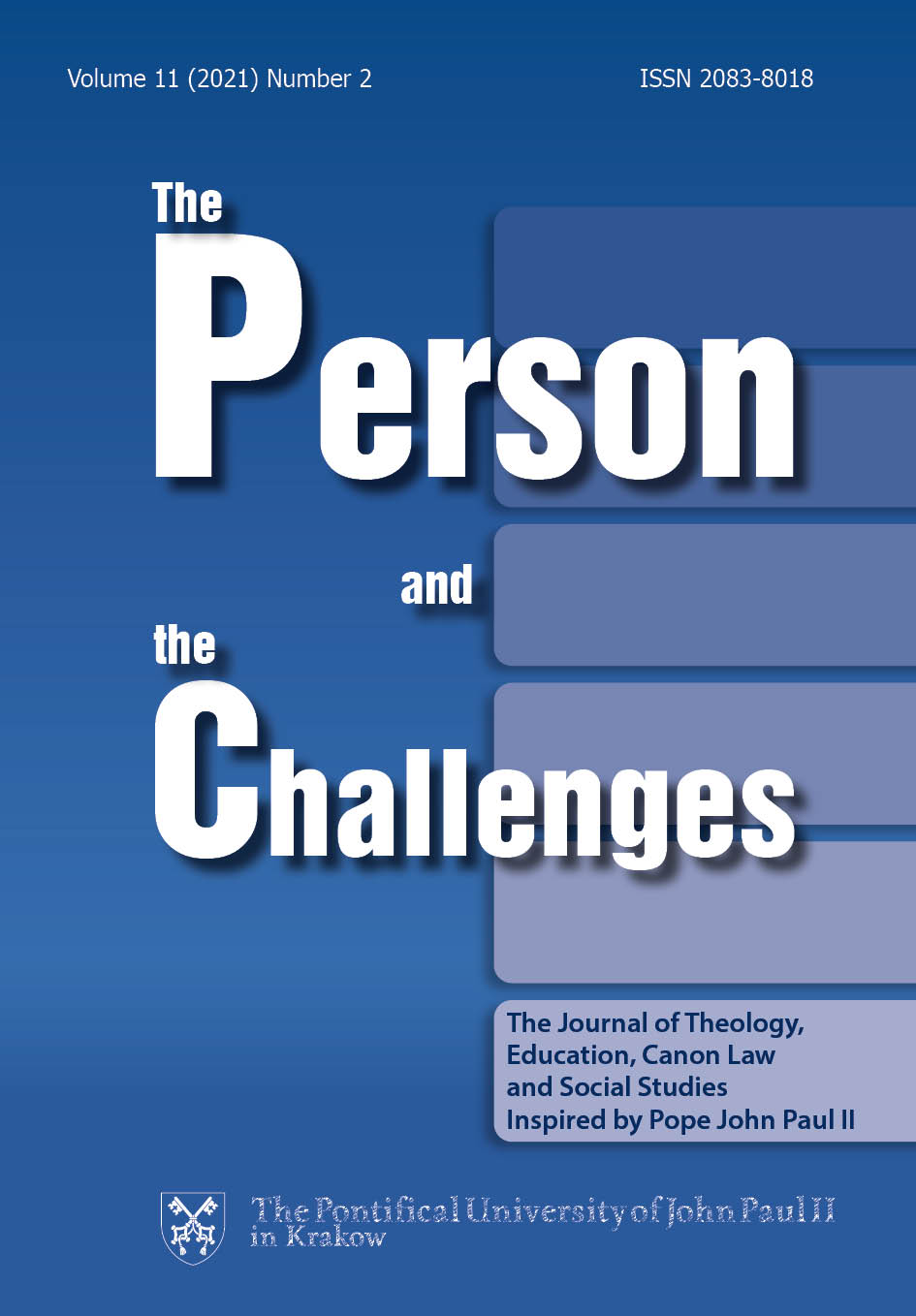Jewish thinkers of the 20th century. In search of identity – Franz Kafka
DOI:
https://doi.org/10.15633/pch.4078Słowa kluczowe:
Franz Kafka, Judaism, God, Atheism, Jewish thinkers, PhilosophyAbstrakt
Franz Kafka’s life and work have been the subject of many research papers. While the interpreters of his works knew that he was a Jew, they did not always fully realize the significance of this fact. Some would treat this issue as a marginal one, failing to see that it was the pivot of his existence and work. Kafka kept wandering about in search of his own identity. As a lost agnostic who “lapsed” from the hand of God, lived without Him in the darkness of atheism and tried to discern His light, Franz Kafka was not really dependent on any specific religious denomination. However, Judaism is so strongly related to the Mosaic revelation – like Christianity is related to Christ’s Revelation – that it cannot be here omitted or forgotten, as this would result in some misunderstandings. In a sense it is impossible to separate the fact of being Jewish from the religion. Kafka’s life, as well as his writing, resulted from his continual reference to the Absolute. There are two worlds far removed from each other: the world of spirit and the world of man. Kafka believed that there is a world of that which is spiritual, absolute, pure, true, unchanging and indestructible – the world devoid of sin, but full of perfection; therefore, there exists that which man tends to encapsulate in the concept of God.
Bibliografia
Kafka F., The Diaries 1910–1923, trans. from the German by Joseph Kresh, Schocken Books Inc., New York 1949.
Janouch G., Conversations with Kafka. Notes and Reminiscences by Gustav Janouch, trans. Goronwy Rees, Derek Verschoyle Limited, London 1953.
Kafka., Wedding Preparations in the Country and Other Posthumous Prose Writings, trans. Ernst Kaiser & Eithne Wilkins, Secker and Warburg, London 1954.
Kafka F., The Complete Stories, trans. Willa and Edwin Muir Schocken Books, New York 1971.
Kafka F., Briefe 1902–1924, Frankfurt am Main, Fischer Verlag, 1975.
Kafka, Letters to Milena, trans. Philip Boehm, Schocken Books, New York 1990.
Kafka F., Dociekania psa; List do ojca; Proces; Zamek, Warsaw 1994.
Pawel E., Franz Kafka. Koszmar rozumu, trans. Irena Stąpor, Warszawa 2003.
Kafka F., The Zürau Aphorisms, trans. Michael Hofmann, Harvill Secker, London 2006.
Kafka F., The Trial, trans. Mike Mitchell, Oxford University Press, Oxford 2009.
Pobrania
Opublikowane
Numer
Dział
Licencja
Autorzy publikujący w czasopiśmie udzielają jego wydawcy zgody o następującej treści:
- Autor zachowuje autorskie prawa majątkowe do utworu, a jednocześnie udziela wydawcy czasopisma zgody na jego pierwszą publikację w wersji drukowanej i wersji online na licencji Creative Commons Uznanie autorstwa 4.0 Międzynarodowe oraz zgody na wykonywanie opracowań, w tym przekładów.
- Autor ma możliwość udzielania zgody niewyłącznej na opublikowanie utworu w wersji, która ukazała się w czasopiśmie (np. zamieszczenia go w repozytorium instytucjonalnym lub opublikowania w książce), wraz z informacją o jego pierwszej publikacji w czasopiśmie.
- Autor może umieścić swój utwór online (np. w repozytorium instytucjonalnym lub na swojej stronie internetowej) jeszcze przed zgłoszeniem utworu do czasopisma.

